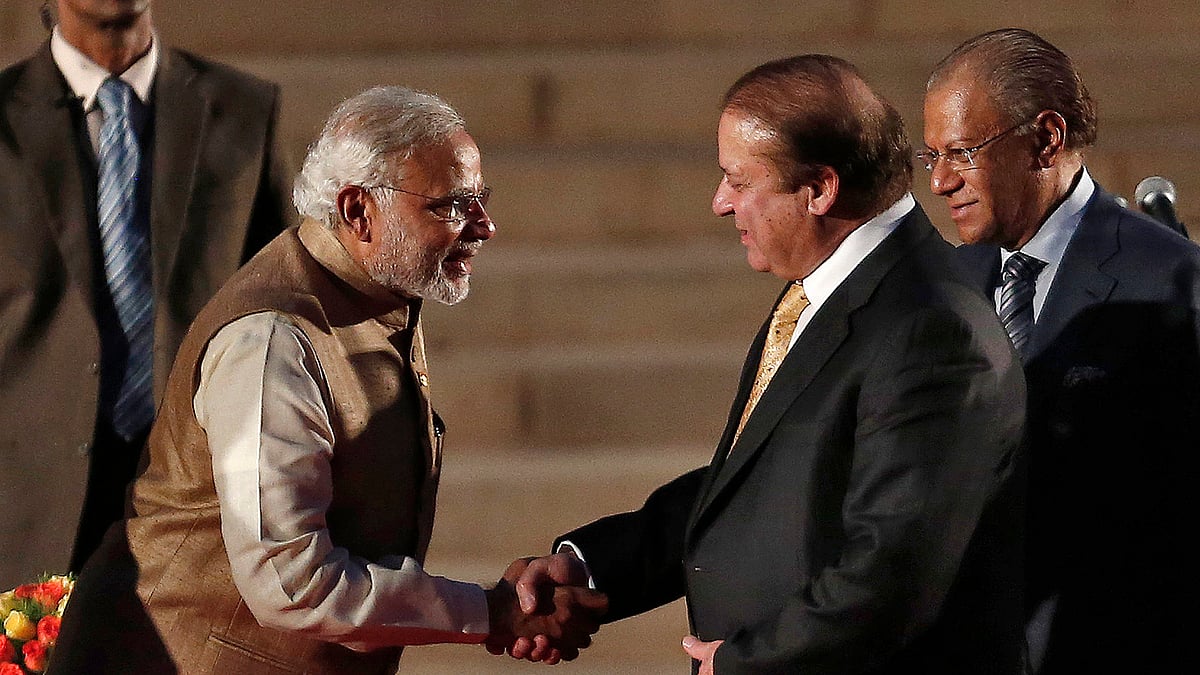Modi in Muslim Lands: The PM’s Subtle Foreign Policy Moves
No Islamic nations were visited during Modi’s first year of govt. But will 2015 be the year of Modi in Muslim lands?

advertisement
A year into office, the Narendra Modi government’s foreign policy has come under intense scrutiny.
For one, his predecessor did not engage in foreign policy as actively, and this is one area where there is general consensus between his admirers and detractors alike. Some critics have, however, pointed out that in the first year, the prime minister did not care to visit a single Islamic country.
Of course, this charge does not take into account that Islamic Maldives was on Modi’s Indian Ocean region tour itinerary. It was cancelled because of Maldives’ domestic problems over the arrest of former president Mohamed Nasheed. Was that wise? The jury is still out on this.
So yes, his first year in government did end with Modi not visiting any Islamic country. But does that mean his government’s policy did not engage with the Islamic world?
On the Contrary...
The first year of NDA II governance has seen heightened engagement with the Muslim world. Modi kick-started his neighborhood first policy with the invitation to all seven SAARC countries – four of them Muslim – to his swearing-in ceremony. All the leaders barring Bangladesh’ Sheikh Hasina made it to the function.
Prominent of all was Modi’s meeting with Nawaz Sharif and the gifts the two exchanged for their mothers. If relations with Pakistan have been blowing hot and cold since then it has certainly not been for lack of trying.
He later met with Hasina in New York on the sidelines of the UN General Assembly.
A Wider Engagement
Similarly, Modi had meetings with some other Muslim heads of state at multilateral fora – such as Saudi King Salman bin Abdelaziz during the G20 meet.
Bilateral meetings continued with many dignitaries from the Islamic world visiting India – the Emir of Qatar, the foreign ministers of Bahrain, Oman, and Tajikistan, and Afghan President Ashraf Ghani.
While Qatar and Bahrain have promised to invest in Make in India, Bahrain signed an agreement for homeland security. Modi took the bold step of selling three multi-role helicopters, along with allied equipment and spares, to Afghanistan, in a sharp departure from UPA-II’s policy.
Sushma Swaraj’s Contributions
Simultaneously, External Affairs Minister Sushma Swaraj has also been working away, quietly and resolutely.
Her very first trip after taking office was to Bangladesh. Her quiet diplomacy has resulted in the historic LBA, in the doldrums for over 40 years, with Bangladesh. Swaraj also visited Afghanistan, Bahrain, Oman and the UAE.
In Afghanistan, she helped secure the release of an abducted Indian Jesuit priest, reached out to the GCC countries, and the expatriate Indian communities there, extracting promises for investments for Make in India.
The geo-strategically important and resource rich Turkmenistan and Tajikistan have also hosted her, along with the Maldives and Indonesia – the world’s most populous Muslim country – where she attended the Asian African summit 2015.
The result of all this engagement has been significant. Through negotiations with a number of countries, India managed to secure the release of 49 nurses abducted by IS.
Similarly, New Delhi managed to evacuate both its own and nationals of 32 other countries from war-torn Yemen, thanks to the cooperation of Saudi and Yemeni authorities.
A Series of Firsts
There have been some important firsts too: the formal meeting of the High Joint Commission of Bahrain and India took place in Delhi, which Swaraj chaired with her Bahraini counterpart.
This year too the first foreign office consultations between India and Palestine took place in Ramallah. This is significant for two reasons: such consultations take place only between two states; and it comes amidst India’s very visible burgeoning relations with Israel.
Swaraj had also earlier met Special Palestinian Envoy Nabil Shaath in Delhi and at the NAM Committee on Palestine in New York, and reiterated India’s support to “the cause of the Palestinian people.” She repeated this stand again at her annual press conference in Delhi recently. India has pledged $5 million in aid for Gaza’s reconstruction.
Reaching Out to the Muslim World
India has been reaching out to the Muslim world in other ways too. Overlooking Afghan President Ashraf Ghani’s willful neglect of India while making overtures to Pakistan, Modi offered assistance to the country in the wake of an avalanche there. Similarly, it rushed drinking water to Maldives, when the country’s only water desalination plant burned down.
Finally, the nod to the Chabahar port development in Iran and the anticipation of an end of the sanctions regime has seen some high profile delegations headed by Nitin Gadkari visiting Tehran.
While much of it has been built on relationships cultivated and nurtured by previous governments – foreign policy is after all a continuum – the Modi administration has kept up the engagement.
And now, with the PM all set to visit Bangladesh and his upcoming foreign itinerary listing destinations like Askhabad and Dushanbe, 2015 may just turn out to be the year of Modi in Muslim lands.